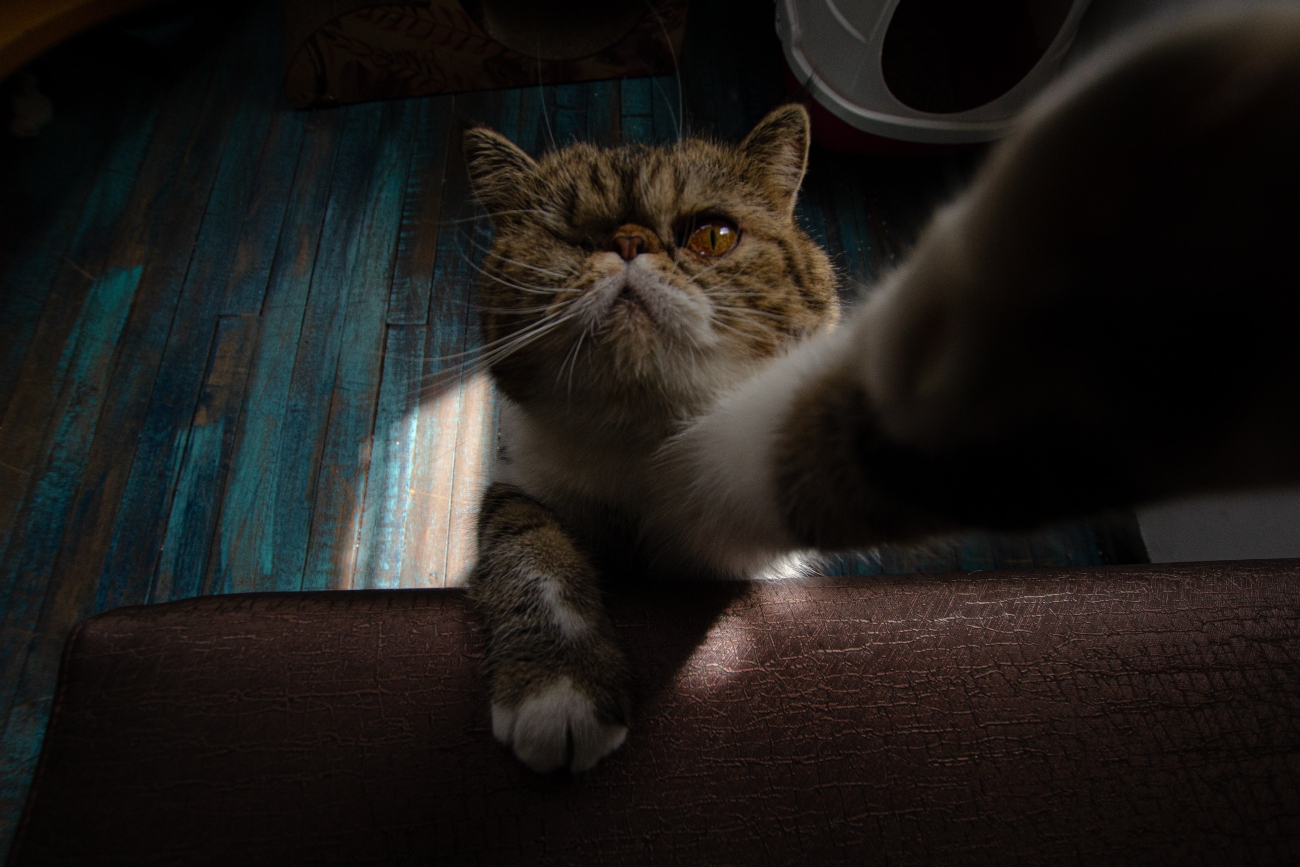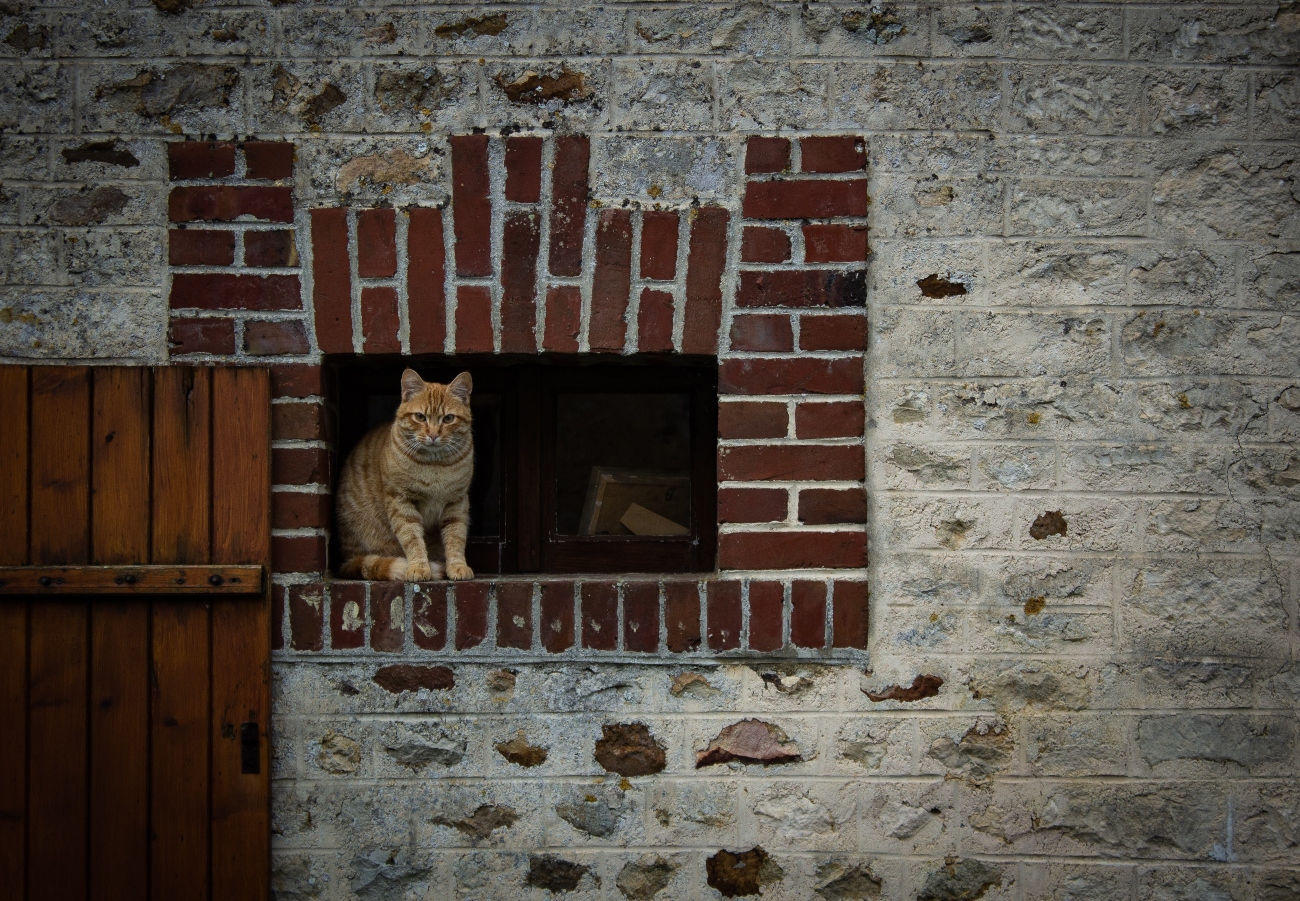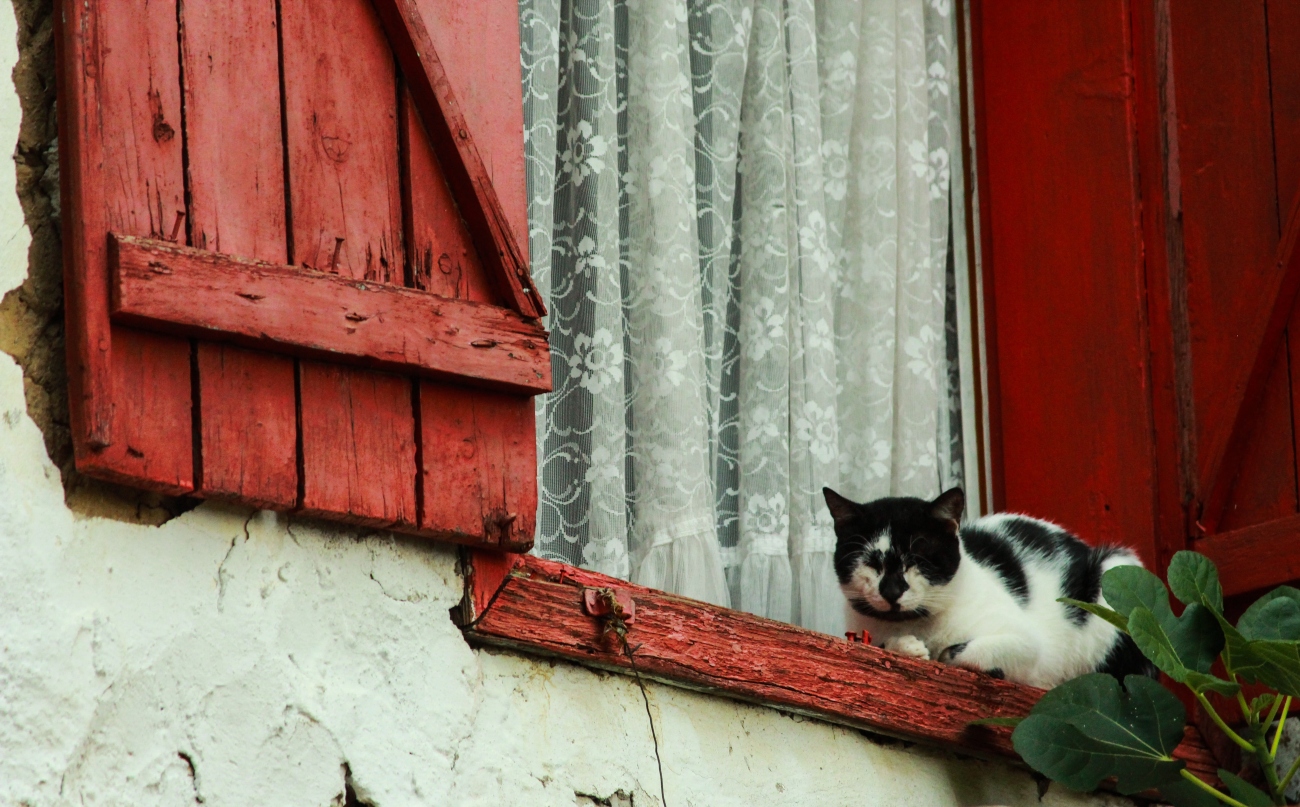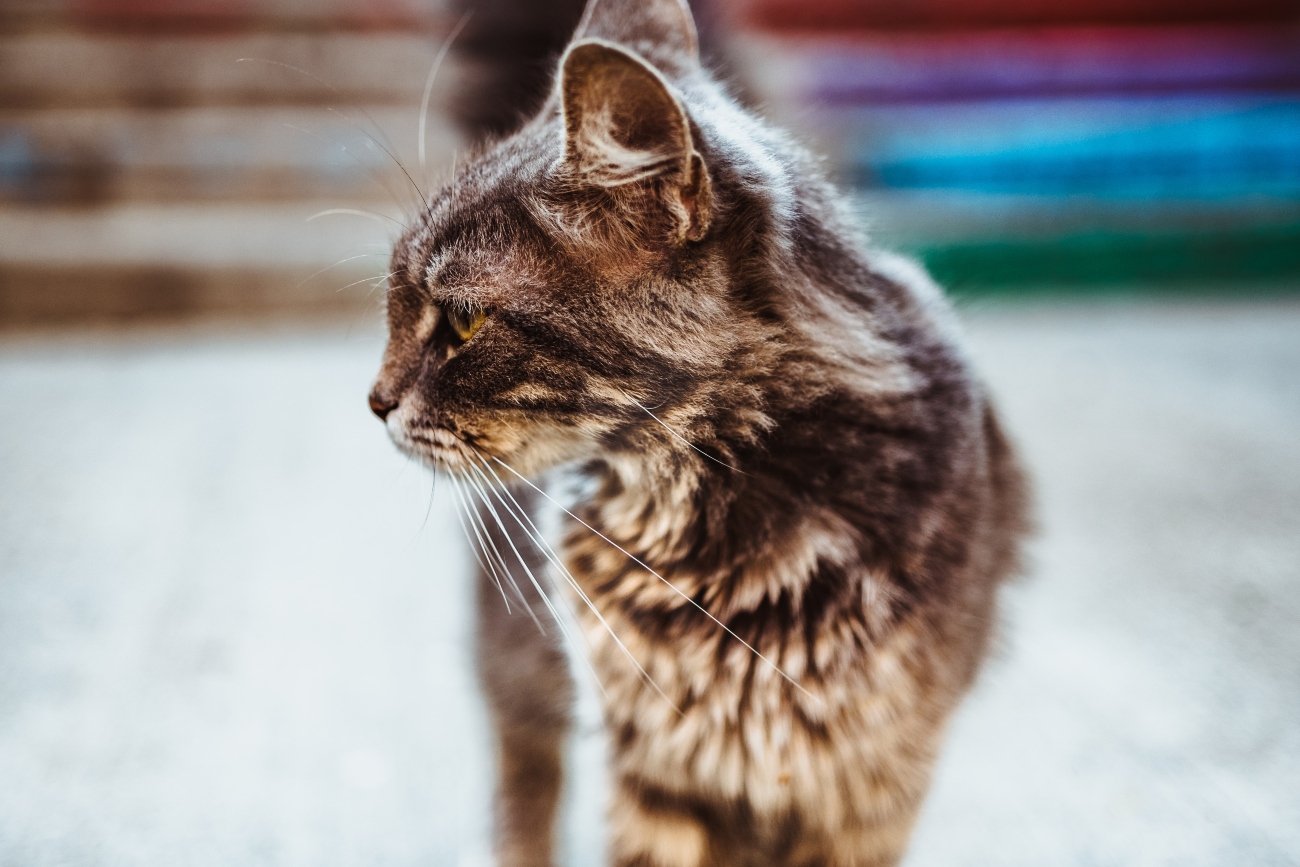
How to help a cat with bloat
25th November, 2021
Many of us are familiar with the uncomfortable sensation of bloating – when too much fluid or gas makes us feel swollen. Bloating can render you sluggish: it can even be quite painful.
However, it's important to know that bloating can also affect many animals – including cats. The main difference is that, in these cases, bloating can present a much more serious problem.
The good news is that treatment is often straightforward. Sometimes, it may require a visit to your vet – but don't worry, expenses here may be covered by your pet insurance for older cats.

Causes of bloating
Bloating occurs when an animal's stomach is full of excess gas, fluid, or foam. This excess can be caused by a number of factors.
The commonest cause will be the animal having swallowed too much air. However, another factor can be the blocking of the pyloric sphincter. This small valve at the bottom of your cat's stomach allows gas, fluid and other material produced by the digestive process to exit the stomach and make its way into the small intestine. If this valve gets blocked, these materials won't leave the stomach properly, leaving your cat with an uncomfortably overloaded stomach.
Bloating can develop very quickly and, unfortunately, can be fatal, in its most severe forms, in as little as 30 minutes. If your pet's stomach seems distended (stretched), or they seem nauseous, are vomiting or attempting to vomit, you should contact your vet immediately.
You should do the same if they seem suddenly weak, or if they collapse, as these behaviours can also indicate serious and potentially life-threatening bloating.
How to recognise bloat in your cat
The most obvious sign that your cat is bloated will be a swollen belly. You may also notice your cat trying to vomit or belch, but being unable to do so. As a result, they may retch a lot, and seem restless.
Another (often dangerous) consequence of bloat is that a cat's lungs may become compressed by the pressure exerted on them by the swollen stomach. As a result, they may struggle to breathe.
Your feline may show signs of pain, or simply look sluggish and depressed. In the most severe episodes of bloating, the stomach can place surrounding blood vessels under serious strain. This can cause irregular blood flow, abnormal heart rhythms, and shock – these things could lead to collapse or even death.

How to help your cat
If you suspect your cat is suffering from bloat, you should keep them calm and contact the vet immediately.
Assuming you have some specialist pet insurance for senior cats in place, an appointment with the vet should not be a financial worry.
Depending on how serious the bloating is, the vet may be able to provide some advice over the phone – or they may ask you to bring in your cat immediately. Your vet will make an assessment using various techniques.
For example, a physical examination – through gently massaging the stomach area and, possibly, with the help of some X-rays. They may also check for gas in your cat's abdomen, by inserting a tube down the oesophagus or a needle into the stomach itself.
If they do suspect bloat to be the cause of your cat's discomfort, they may do any one of a variety of things. For example, if the bloating simply doesn't seem to have brought on any other health problems, the vet will probably just decompress the stomach using the tube or needle, and send you and your cat on your way.
However, if the problem seems serious, your vet may need to stabilise your cat and treat them for shock. This will be done by monitoring their blood pressure, breathing and heart rate – and by giving them fluids intravenously. These procedures may be expensive but again, your pet insurance for older cats should be able to shoulder some of the financial burden.
Can you prevent your car from being bloated?
The causes of bloat in adult cats is not always clear, so it's difficult to provide a one-size-fits-all method for preventing it in your pet. However, there are definitely steps you can take that may help to reduce your cat's chances of suffering from this painful condition.
For example, it's a good idea to give them small, evenly spaced meals, as these are much less likely to stretch your cat's stomach than fewer, bigger, meals. This regime will probably suit your older cat well as felines tend to lose some of their appetite as they grow older – one of a number of changes that we discussed in another post on our site. Also try, if possible, to prevent them from drinking large amounts of water at one time.
Keep a close eye on what they are eating, too. If your cat eats food from a bin, or if they simply try something they are not used to, they can develop gas, which in turn can bring on an attack of bloat.
In general, you can do your best to minimise your cat's bloat by simply keeping a close eye on them. Watch out for any unusual behaviour, try to feed little and often… and, if you notice them acting in any strange way, contact your vet immediately.
If you have taken the precaution of arranging some pet insurance, you won't need to worry as much about the cost of any treatment and/or medication.

A happy, healthy old age with pet insurance from Petwise
Whether it's keeping an eye on what they eat or making sure they are getting the exercise they need, we know that you are doing everything you can to give your beloved cat a happy and healthy old age. And some specialist insurance for older cats can help enormously here.
Why not get in touch with us to discuss the level of pet insurance that will work best for you and your cat?